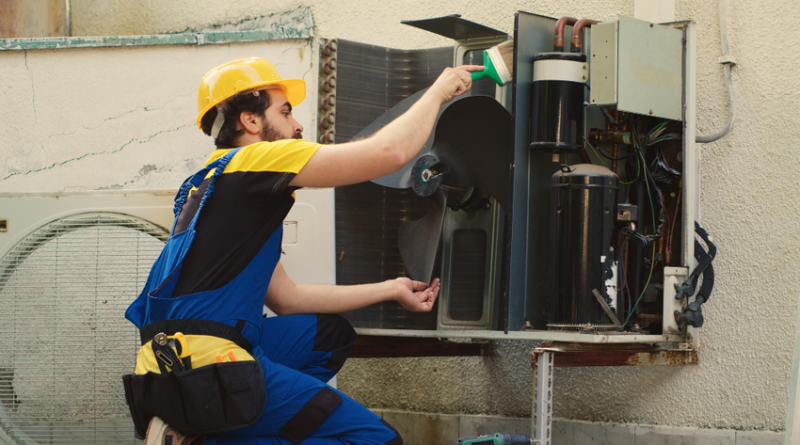5 Warning Signs It’s Time to Replace Your Air Conditioner
When the summer heat kicks in, your air conditioner becomes your home’s most prized possession. But here’s the catch: even the most reliable units won’t last forever. As your system ages, it begins to lose efficiency, costing you more money and offering less comfort. Ignoring early red flags can lead to bigger, costlier problems later on—and no one wants to deal with a failing AC in the middle of May or June.
So, how do you know when it’s time to move on from repairs and start looking into a new air conditioner replacement?
Let’s walk through 5 warning signs that signal when to replace AC unit. From skyrocketing energy bills to strange noises, recognizing these symptoms early can save you money, headaches, and sweaty nights. Whether you’re Googling AC replacement service or just doing a health check for your home’s cooling system, this article gives you clear answers and next steps.
Why Paying Attention Early Saves You Big
By watching warning signs, you protect your comfort, your energy bills, and your wallet. Here, we have mentioned the critical signs that help you denote the time to replace your air conditioning unit.
1. Your AC is Over 10–15 Years Old
How long do air conditioners last? Is your unit pushing 15? That’s the first major red flag. The average AC lifespan is typically 10–15 years, even with routine repair and maintenance. After this time period, wear and tear catch up the cooling device—compressors struggle, refrigerant becomes outdated, and efficiency drops considerably.
Also, old air conditioner replacement isn’t only about age—it’s about performance. Older units simply can’t match the efficiency standards of newer models. In fact, switching to a new energy-efficient system can cut your cooling costs by up to 40%, according to the U.S. Department of Energy. If your system is a decade old and giving you issues, it’s time to rethink repair and start exploring your AC replacement options.
2. Frequent and Costly Repairs
Have you been calling the technician every few months for frequent AC repairs? If your AC keeps breaking down—blown capacitors, leaking refrigerant, or bad thermostats—it’s probably more cost-effective to replace the whole system. Here, the cooling unit follows thumb rule. If repairs cost more than 50% of the price of a new unit, it’s time to invest in a new system. Ongoing AC repair costs quickly add up, and constant breakdowns can ruin your peace of mind. Ask yourself this—are you fixing the same parts over and over? That’s another sign you’re wasting your money at a unit that is already out of the chore. It’s smarter choice to get to know the cost to replace air conditioner and upgrade it.
3. Rising Energy Bills
Noticed a jump in your monthly energy usage? That’s often your AC waving a white flag. As systems age, they work harder and run longer to cool your home—leading to high energy bills. Dirty coils, failing motors, and old components sap energy even if the system seems to be “working”.
Energy-efficient air conditioners are built with advanced technology and these cooling units consumes less amount of electricity. By replacing an outdated, inefficient model, you could see an immediate drop in your utility bills. So, if your bills are creeping up each month—and your usage hasn’t changed—it’s time to consider a new AC unit to help reduce cooling costs.
4. Inconsistent Cooling or Humidity Issues
Does your living room feel like a freezer but your bedroom feels like a sauna? Uneven home cooling or persistent humidity is a clear indicator your system isn’t performing as it should. Hi-tech air conditioners are designed to cool evenly and manage indoor moisture. But if your AC is not cooling properly or you’re noticing temperature swings, it’s a sign of declining performance.
Poor insulation might be the reason—but more often, it’s a failing AC unit struggling to dispense air properly. If you’re battling hot spots or waking up feeling sticky, it’s time to call in the experts. Let them evaluate whether a replacement will finally restore true comfort to your home.
5. Unusual Noises or Odors
ACs aren’t supposed to growl, grind, or smell like mold. If you’re hearing clanking, rattling, buzzing—or worse, a burning smell—it’s not just an annoyance. It’s your system telling you something’s wrong or depicting signs of AC failure.
Bad bearings, loose belts, or mold inside your ducts can all be roots. When AC smells musty, it’s a clear indicator of mold or mildew buildup. Strange noises could mean a motor or fan is on its last leg. Remember that musty smell or noisy air conditioner are not just repair issues—they’re safety hazards and prone to health risks. If your unit is making strange sounds or smells, get it inspected fast. And in most cases, replacing an old, failing system is the safer (and quieter) way forward.
Conclusion
Your AC isn’t just another appliance—it’s your comfort zone when the heat outside is unbearable. From age and frequent breakdowns to soaring bills and humidity issues, these warning signs shouldn’t be ignored. By recognizing them early, you can plan ahead, avoid emergency replacements, and enjoy uninterrupted comfort.
Instead of dealing with the stress of a mid-summer failure, schedule a professional AC evaluation today. Let the experts help you determine if it’s time for a professional HVAC replacement—or if a minor fix will do for now. The HVAC technicians’ team at Good Guys Home Services is trusted across the region for transparent pricing, fast service, and expert recommendations tailored to your home’s unique needs. We don’t just replace systems—we build comfort that lasts. From AC inspections to full-system installations, we ensure your upgrade is smooth, affordable, and built for Colorado’s unpredictable climate.

